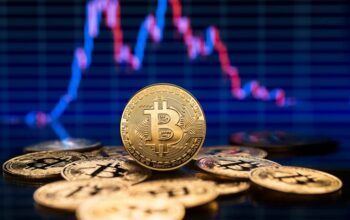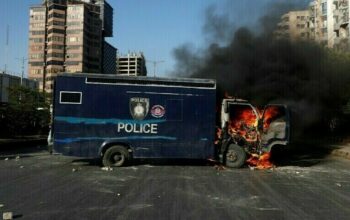As things stand, securing a USD 1 billion financing commitment from the UAE is the last stumbling block in the way of the revival of Pakistan’s IMF bailout.
By Muhammad Ali
ISLAMABAD: Finance Minister Ishaq Dar says he had to cancel his Washington visit to attend the spring meetings of the World Bank Group later this month on the request of Prime Minister Shehbaz Sharif, because of the political crisis playing out back home – but he makes not secret of how unhappy he is over how Pakistan’s dealing with the Bretton Woods Institutions have turned out.
From all appearances, Dar and his team have remained unable to convince the Fund staff to seal a staff-level agreement (SLA) over the 9th review of a billion-dollar bailout from the International Monetary Fund (IMF) that has been on a hiatus since late last year.
This was to be the penultimate review of the programme, scheduled to sunset with the current fiscal ends on June 30, 2023. By securing a quick deal, the government was hoping to gain some precious fiscal space ahead of the final review before the closure of the Extended Fund Facility (EFF).
Dar was expected to lead the Pakistani side at the meetings of the World Bank-IMF Development Committee and the International Monetary and Financial Committee (IMFC), scheduled to be held from April 10 to 16, 2023.
He now hopes to telecommute to key sessions, with Secretary Finance, Governor State Bank of Pakistan, and other key officials attending in person to represent Pakistan.
Pakistani authorities believe the IMF deal should have been struck on February 15, 2023, when a Fund field mission concluded its review of the country’s economy. But two months later, the signing of the SLA is still pending and no definitive deadline is in sight.
Dar and his team are miffed that the IMF changed the modus operandi in case of Pakistan. Usually, the SLA is done and then the confirmation of any prior actions is sought before the IMF Executive Board meeting for the approval of the next tranche. Pakistan, however, has been forced to ensure confirmation of financing from bilateral sources prior to the signing of the SLA.
The government took all the requisite prior actions including additional taxes to the tune of PKR 170 billion, electricity and gas tariff hikes, massive exchange rate adjustment, increased POL prices, rollout of a Petroleum Development Levy, and a policy rate hike to 21 percent.
The sheaf of reform measures, each of them inflationary in its own right, has pushed inflation to historic high levels, with the CPI and SPI based inflation raging at 35.5 percent and around 45 percent respectively. The Fund, however, has remained unmoved in spite of everything.
On external financing requirements, China had rolled over USD 2 billion and refinanced commercial loans of USD 1.7 billion out of total requirement of USD 2 billion.
The Kingdom of Saudi Arabia has also confirmed to the IMF that they would provide additional deposits of USD 2 billion within the ongoing financial year. The last remaining condition of the Fund will be met when the United Arab Emirates (UAE) chips in with a USD 1 billion deposit, although it is by no means certain if the rich Gulf sheikhdom will oblige.
Dar and his team, therefore, have their work cut out: They have to either clinch the assurance of financing to the tune of USD 1 billion from the UAE, or failing UAE’s willingness, secure the same assurance from another source.
Fingers are crossed the Finance Minister and his team can source the requisite financing in short order, paving the way for the signing of the SLA, putting the EFF back on the rails.
Copyright © 2021 Independent Pakistan | All rights reserved




